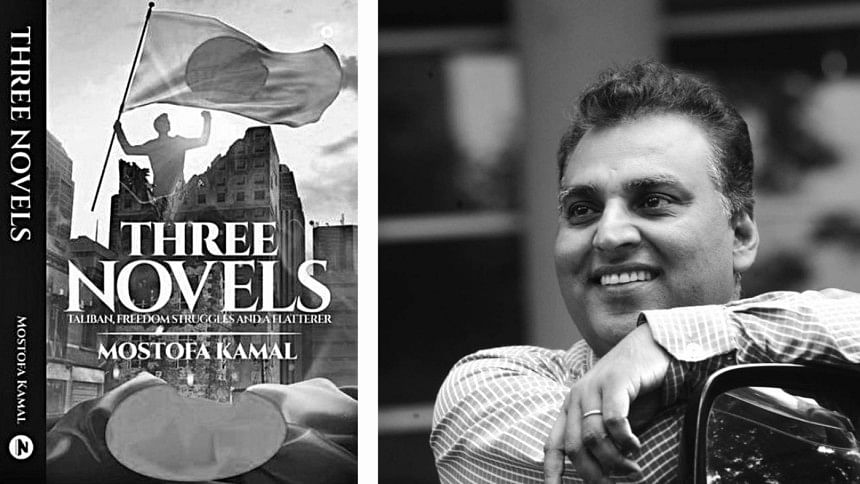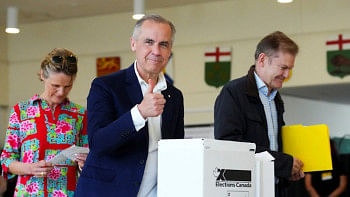“Novels cannot always be made only with the Imagination and the Pen”: A Talk with Mostofa Kamal

Novelist Mostofa Kamla was born in the village of Andharmanik under Barisal district on 30 May 1970. He started his career as a journalist after completing his Masters in English from the University of Dhaka. He worked in various capacities in the leading dailies of Bangladesh. Currently, he is the Executive Editor of Daily Kaler Kantho. Recently his collection of Three Novels has been published from Notion Press of India.
MA: Recently a collection titled Three Novels has been published from Notion Press of India. This is the collection of three books that got published separately from Dhaka. Now it is published in English from another country. How are your feelings regarding this?
MK: My feeling is extremely good as this is the first time when any of my work has been published from outside the country. All the three books first got published in Dhaka. The first novel of this collection is The Flaming Eventide which was published from Anonnya Prokashoni under the name of Barud Pora Shondhya. I myself got it translated into English and it was later on edited by Professor Syed Manzoorul Islam. Its English version was published by Pearl Publication in Dhaka.
The next book titled Hello Colonel was published by Abshor Prokashoni and Dulal Al Mansur translated it into English. Anonna Prokashoni published the third book titled Telbaj which was translated into English by Masum Billah under the title The Flatterer. The collection has been released from a different country means they will reach the readers of different countries and different people that must be a matter of great pleasure for me.
MA: How have these three books been selected separately?
MK: When the book Barud Pora Sondhya first came out, it received huge responses from the readers. Naturally, it inspired me to get it translated into English. The two other novels are also full of special features. I sent the novels to several publishing houses, and finally, the Notion Press of India accepted the collection with much interest and told me to send the manuscript. After the completion of all the formalities, the book came out though I did not think it would come out so soon.
MA: What kind of response are you receiving after the publication of the Three Novels?
MK: Excellent! I have about one hundred books published so far but the after the publication of this collection, I felt overwhelmed. The collection is now available on rockomari.com in Bangladesh and on amazon.com, amazon.uk, amazon India, and a few other places. Readers from home and abroad have given positive feedback
MA: Please, tell us something about your novel titled Janani that has come out from Olympia Publishers in London in English.
MK: Janani is my most favourite novel. It was first published by Pearl Publication. I sent the synopsis of the novel to the Olympia Publishers, London barely one year back. Then they contacted me letting me know that they liked the book and requested me to send the manuscript. At first I was hesitant in sending it as I was not sure of the establishment. After being assured by different quarters, I sent them my manuscript and after six weeks the head of editorial board wrote me a letter saying that they wanted to publish the book. I went through the deed and found that it a planned document explaining about the right-royalty of the author.
MA: The famous and well known publishers of the country have published your books. Now it is from abroad. How do you find the difference between these two?
MK: Many of my books have come out from the famous publishers of Dhaka but being published by an international publishing company I feel honoured. It's a great achievement, I think. It has helped me evaluate myself in a new way. The Mother was published in January. They would print five thousand copies in the first edition and would give me twenty percent royalty from the first while twenty five percent from the second edition. As a Bangladeshi writer I am really very pleased and happy.
MA: You have composed the trilogy based on the theme of time and events ranging from 1947 to the Liberation War. Tell us something about the book coming to the Book Fair of 2019.
MK: I have had a desire to work under a big canvas. For this reason, I collected books for seventeen to eighteen years. It is a huge canvass of history—time, events and various ups and downs, division of the country in the 1947 till the Liberation Movement through which I have worked. I had to read and understand history, events and characters to give them life. I have presented historical characters as flesh and blood. I have utilized my imagination and desire of creativity. I have tried so that readers can relate with the events and characters while reading. The rest of the events could be told by the readers. Two phases of this novel have been published –Agnikannya and Agni Purush. The last phase titled Agnimanush will come out in the coming book fair.
MA: What is the principal problem or risk for a novelist to write a novel based on a famous person or history? Have you faced any such risk?
MK: The risk is whether the event or character is presented inaccurately. I had to remain alert of this. By reading books, doing field work and watching different videos I tried to feel and perceive the period and personalities and giving it a reality. I had to develop the plot of the story perceiving the ins and outs/inside and outside of Maolana Vashani, Suhrwardy, Nehru, Zinnah and Bangabandhu. I had to remain conscious and careful so that wrong information does not appear anywhere. I had to be careful also to present the characters in their right perspective without belittling or magnifying anyone. I wrote about the Language Movement of 1952 living in 2018, or the six point's demands. I tried to do it in consideration so that readers can feel at one with the characters and events of these periods.
MA: Are you working on anything right now?
MK: Several write-ups are being prepared but mainly Agnimanush--the last phase of the trilogy is being written. In this long novel I want to show the struggle of men and women--how they overcome time and adversity together. At different points of history how famous and accomplished men worked for freedom and language, etc. The novel has accommodated different types of people, their struggles and fights. This country achieved freedom through freedom struggle and the novel closes with Bangabandhus's homecoming.
MA: You are a journalist by profession. How suitable is the profession of journalism for a writer, you think?
MK: I once asked the same question to fiction writer Shawkat Osman. From my childhood it was my dream to be a writer. After completing the institutional education which profession should I choose? I must choose the profession which will help me continue my writing. I went to Shawkat Sir at his Old Dhaka residence with one of my friends. He used to live then near Tikatuli. He suggested that I should choose teaching as a profession to continue my writing. I asked him how it would be if I chose journalism as a profession. Sir said that it would kill much of my time but I could do it if I wanted. I would learn a lot and to be a writer it is necessary to learn and experience many things. I also thought it would give me opportunity to visit many countries that other profession might not. And to speak the truth, I have visited many countries of the world because of being in this profession. It has enriched my experience. I have written my novel Hello Colonel in the background of how Taliban emerged in Pakistan. I then used to work in the Prothom Alo and went to Pakistan with an official assignment. It is really very valuable to see, learn and experience things both at home and abroad. And it is possible to write something good utilizing those experiences. That convinces me that journalism has given me some extra advantages to be a writer.
The interview which was taken in Bengali, has been translated by Masum Billah.

 For all latest news, follow The Daily Star's Google News channel.
For all latest news, follow The Daily Star's Google News channel. 



Comments